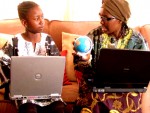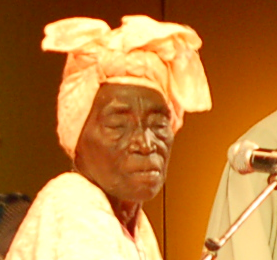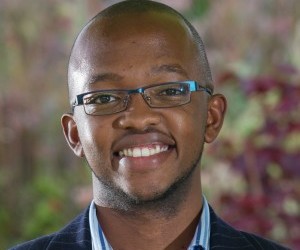A revolution is occurring throughout African societies. While governments implement high-level, high-visibility ICT strategies, experts have recently identified far more radical, hidden changes occurring across the Continent. New technologies, when adopted, are adapted to local needs: a sort of under-the-radar innovation which is now pushing the boundaries of what is possible.
Recent news
Skype’s 10th Birthday – tell us your story!
This week marks ten years since the web address www.skype.com was registered. At the time, telephone companies were concerned: by offering free video calls over the Internet, Skype had not only introduced a form of communication more futuristic than mobile telephony (almost, perhaps, the stuff of science fiction), but also fundamentally undermined the communications industry’s business models.
ICT against Inequality
International Girls in ICT Day this year saw new projects set up worldwide to create an environment that encourages girls and young women, at present disadvantaged by a gender-based digital divide of worldwide prevalence, to consider careers in the field of ICT. But why is there a gender imbalance in the technology sector at all, and what’s being done to fix it? The eLearning […]
East Africa mourns a legend
The Zanzibari singer Bi Kidude has died. It is believed she was 102 or 103 years old. Adam Salkeld gives a personal appreciation.
African Libraries under Threat
The Latin poet Horace famously brags that his book of Odes is “a monument more lasting than bronze”. It is certainly pleasant to believe that an author’s ideas can live on in print after his death, according him a certain measure of immortality: the sight, however, of a shelf of crumbling paperbacks is enough to shake the firmest faith in the durability of the […]
Le challenge EAST 2013 : randonnée au sommet du Brandberg Königstein !
Chers aventuriers, eLearning Africa Scholarship Trust (EAST) a le plaisir de vous dévoiler les détails du challenge EAST 2013. Chaque année, EAST accorde des bourses aux ressortissants africains aux faibles revenus afin qu’ils participent à eLearning Africa. Collecter des fonds pour couvrir les frais des nombreux candidats nécessite des efforts considérables. Aussi, pour atteindre cet objectif, nous avons organisé le challenge EAST – une […]
Technology Innovation Hubs in Africa: Creating Opportunities for Peer Learning and Knowledge Exchange
As hotspots for local IT communities, innovation hubs provide powerful opportunities for social innovation and community empowerment. But how can hubs ensure that all their activities, including community building, tools, services and workshops pay their way and help to build sustainable replicable environments for local empowerment? Join participants involved in hubs all across the Continent at this eLearning Africa pre-conference workshop to exchange knowledge, […]
Powering classroom learning with Dell cloud client computing
Classroom technology can transform the learning experience. With Dell cloud client computing you’ll discover how to use it to meet your goal of raising education standards. How? Dell cloud client computing understands what technology is beneficial to have in the classroom – and what’s not. Just by moving complex technology and management away from the classroom, leaves you with powerful easy-to use class computers […]
Iyadunni Olubode on LEAP
LEAP’s target audience are essentially youth and business owners. We reach our audience primarily through training programmes and our published resources which both support the cultivation of personal leadership as well as community and organisational leadership. To date, LEAP has over 9 publications, which serve as tools to support personal and organisational leadership development. Our youth programmes focus on the development of leadership and […]
More than meets the eye: In conversation with Mark Kaigwa
Mark Kaigwa is a digital strategist, consultant, speaker, writer and self-proclaimed ”power networker.” Nairobi-based Mark makes it his business to keep absolutely up to date with the developments of the technology and communications sectors and uses his expert knowledge to help businesses, start-ups and non-profits to launch into the thrilling environment of African entrepreneurialism. Ahead of his keynote speech at eLearning Africa 2013, we […]



























